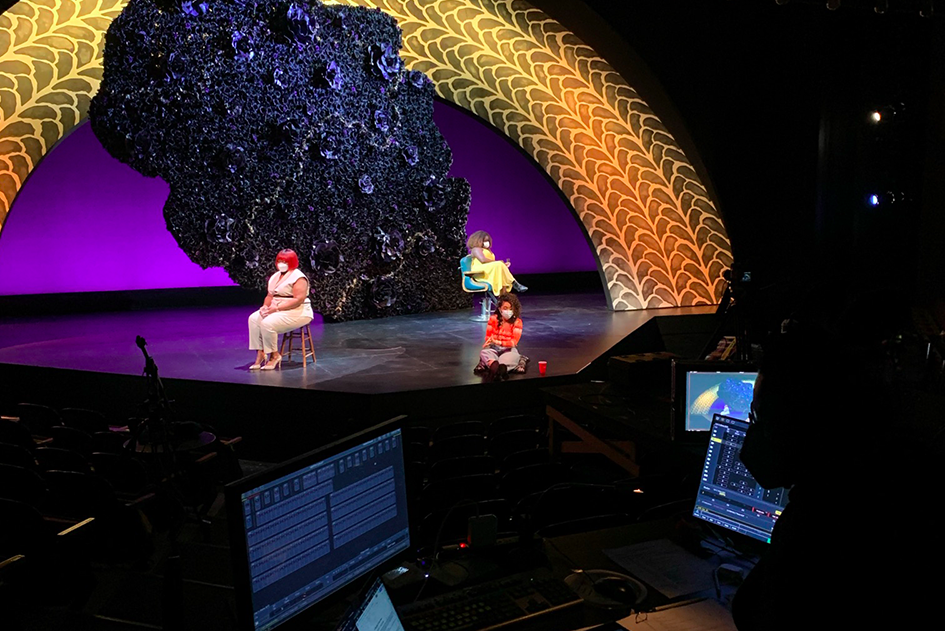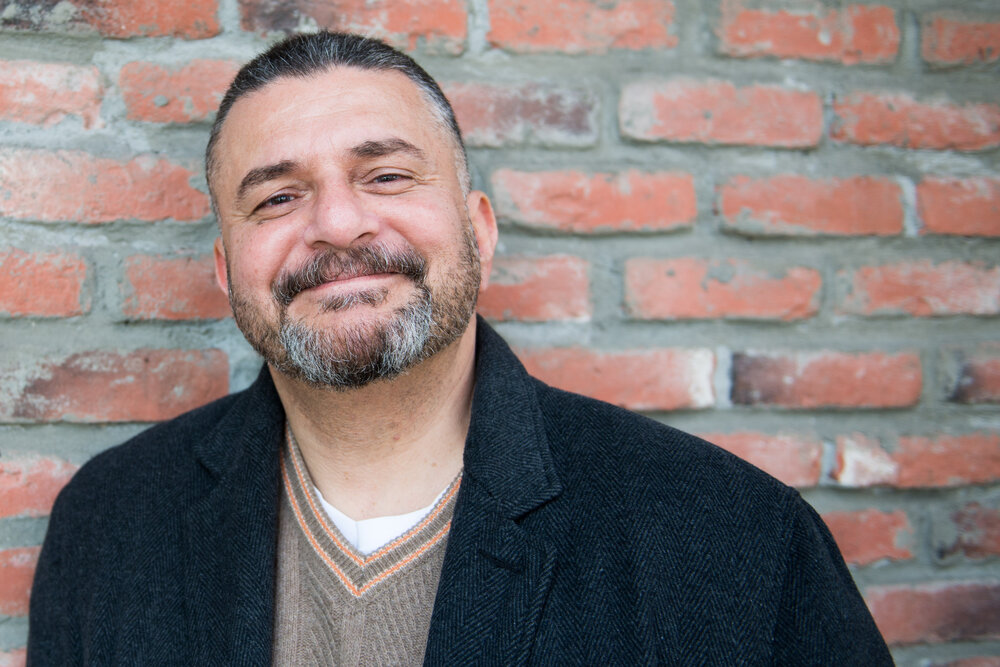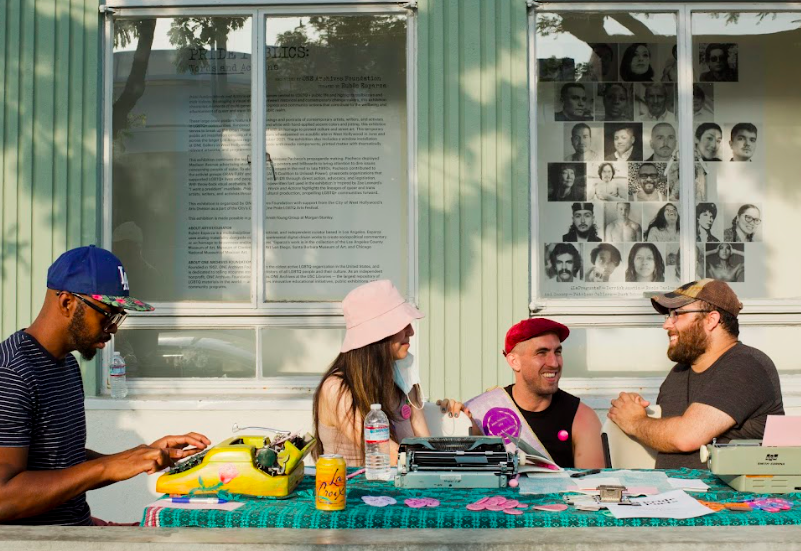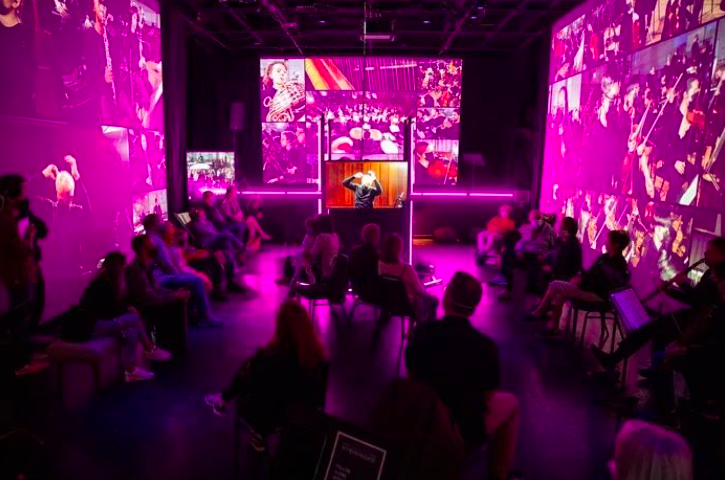Learning to produce for the stage, for the screen, and for both
When COVID-19 closures began, Baltimore Center Stage (BCS) was in the process of producing a one-person show performed by the work’s playwright. Not wanting to lose its investment in the work, the theater company filmed the show, created an audio recording, and released these as soon as it reached agreement with the relevant unions. Soon after, the company launched Play at Home, a national initiative born from the impulse to support artists who were out of work and to bring joy to those theater lovers who missed gathering to tell stories. That project commissioned over a hundred plays that could be produced by groups of various sizes in their homes. Enthusiastic at-home performers shared their digital versions of these plays, in some cases reaching out to the playwrights and continuing to build connections.
From this busy spring of 2020, the regional theater company, which typically produces commissioned and contemporary works, began planning for a future that would be at least hybrid, if not fully digital. It had not yet announced a 2021 season, so the company was able to create its programming with COVID in mind rather than translate existing plans.
From then through the present, BCS made plans that allowed for hybrid work or quick switches to digital-only events. Its Bridge Series of live virtual events used readings and discussions to connect classic plays with contemporary ones. In January 2021, BCS eased back into live theater, first with a three-person show planned to be filmed live and then streamed, and then with productions designed for very small in-person audiences with online streaming.
BCS believes that a hybrid universe is here to stay. Though not every piece the company creates will be hybrid, BCS wants to be clear in its intentions while planning its programming about whether a work will be live-only, simulcast, prerecorded, or filmed and posted later. Its leadership thinks the desire for hybrid work existed before the pandemic, but COVID closures forced the removal of barriers like staff time, knowledge, and intellectual property rights.
BCS’s digital audience is now both local and international, but the process of building the audience has been difficult at times. The company had to develop new models of working as they adapted to the process and competencies required to produce, market, and distribute theater on film. The team learned how to produce theater on film, a skill separate from both producing live theater and producing film—like building a boat with a group of people trained only in airplane engineering, says Chiara Klein, director of artistic producing. One particular pressure point was the time and skill required to edit film. In live theater, once a production reaches the stage, the production and producing staff’s work is largely done; in the hybrid world, there is an additional editing timeline in order to have a completed film by opening night.
The company experienced an inflection point around fall 2021, when viewers seemed to actively opt in or out of streaming rather than turn to it because they had no other options. Over time, digital work became less of a necessity for BCS and more about the work the company wanted to be doing. Throughout the season, select performances were simulcast with a vendor to bring the live experience into peoples’ homes. Not every event needed the same ingredients; instead, Klein sought to match the medium, energy, and container for what the company was trying to achieve. Similarly, not every event needed to serve the same audience, or even a large audience. In some civic events, for instance, the company focused on active chat, shares, and discussions of its projects on social media and generating work to support artists. This shift in perspective has given BCS license to experiment and explore more options for varied digital programming in the future.









